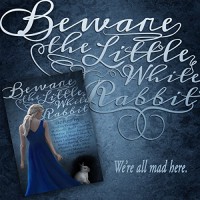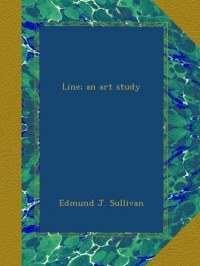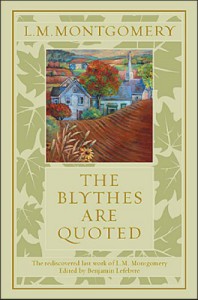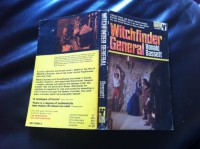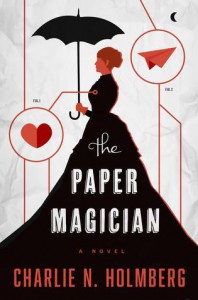
This could have been spectacular. It missed some amazing opportunities, though, and was poorly written, and unfortunately that impacts my rating and opinion of the book. Along with the ending.
Unless it is based in some mythology or folklore I've never heard of, the author created a new kind of vampire. Dead/undead, unkillable, stealing heartbeats from others to take the place of those no longer stirring her own heart, Senza Fyne is perpetually eighteen years old. Once so afraid of death that she agreed to this still-hearted existence, now she avoids staying in one place for too long and watches as those she loves age and die.
The initial problem I have with this really terrific premise is … it simply takes too long to manifest. For nearly a third of the book (29%, thank you Kindle reading progress counter) Senza is battered by first the death of a favorite grandmother and then of a friend, and – along with her mother's constant badgering that she needs to snare a husband before her great beauty fades – that is supposed to be the reason she is so terrified of death. It doesn't work. She meets with the mysterious Mr. Knell quite some time after the second death in her life, when she seemed to be beginning to recover. If at that point she had, say, witnessed a child run over in the busy street or something of the sort, I could understand her worry blossoming into a full-blown obsession. Or if another adventure in the story had been the focus of the beginning, I would have bought into the whole plot much more readily.
The adventure I refer to there is Senza's involvement in the Jack the Ripper murders. Without spoilers, I will say that it felt wildly implausible; for one thing, there's no historical basis as far as I know that all of the Ripper's victims knew each other. I think that would have been counted as evidence. Late nineteenth century police work was primitive, but even then something like a common pimp or customer among the victims would probably have come to light. And quite simply the depiction of the victims in this book is historically inaccurate, and served to make me less than trusting of pretty much the rest of the author's research. (For one thing, the final victim was blonde.)
At least Senza didn't become a gorgeous female Forrest Gump, inserting herself into historical events at every turn, and I'm grateful for that. Her peregrinations take her out of history, which actually makes the Whitechapel events stand out even more – not in a good way.
Senza is gorgeous – stunningly gorgeous. And the reader is never allowed to forget it, not for a moment. Tight third-person perspective or no, her astonishing beauty is kept at the forefront. ("I can’t imagine you ever looking less than perfect.” She dropped her gaze. She couldn’t imagine it, either.) Oddly, it's never made out to be a burden as I've seen elsewhere; the only readon it's not an asset is that, as her mother does keep reiterating, beauty fades. But Senza has a brain as well, and reads constantly – especially Shakespeare. This should have been endearing, for me. It wasn't, merely because it all comes back, as so many things do, to "show and tell". No matter how many times I'm told that Senza is ever-so-clever and knows Hamlet by heart and can out-argue philosophers and scholars … I was never shown it. There are very occasional scenes in which she is shown reading – or, rather, sitting somewhere with a book and thinking about Mr. Knell or her troubles; she quotes Shakespeare once, to my knowledge; otherwise her dialogue and behavior show no indication of all those brains.
One major area where the unique and fascinating premise of the book is simply let down is in the way it is dealt with in the narration. By this I mean: The book is told from the point of view of Senza, the thief, whose existence is turned upside-down by this "gift", and who – at a sheltered and innocent eighteen – has to learn how to manage the new facts of her life. An incident is described from the first days of her altered state – but apart from her awareness of the need to avoid another such incident, there's not really anything here about how she avoids it (does she lock her door at night? Use a doorstop? Claim to kick and snore in order to avoid bedfellows?) The mechanics of stealing heartbeats are glossed over, but more would have been better: I would have preferred less buildup to the change and more on her learning curve. And at certain points the stolen heartbeats are described as having a flavor or weight to them – but again there is little more than that provided. Again, in a tight-perspective narrative, where POV never leaves the main character and where that character's entire existence centers around others' heartbeats, I expected there to be more color, more data. What do they taste like? How do they have weight? What are the mathematics to their being used up? How does she work out her routine of where and from whom they're stolen?
So, the idea was terrific, let down by execution – and by the writing. For example, the author has a strange disconnect with gender in her vocabulary, which perhaps will be fixed for a final draft. The mysterious Mr. Knell constantly calls Senza "bien-aimé" – the masculine form of the endearment; a man's hair is described as "blonde", commonly the feminized form of the adjective.
"The captivating woman with the eyes that never stopped." Stopped what? "Most interesting was the fact that the fan, once the ultimate female weapon, had been replaced by the ever-useful garter belt and the secrets they concealed." What secrets, and how big is her garter belt? "Exploring the costal colonies—states, she’d remind herself" – aside from the typo, Senza wasn't so old she'd be thinking of the states as colonies. This is ridiculous.
I had an issue with the idea of a love interest being named Gehring. Sorry – too many evil echoes.
And yes, I am aware that at least some of the problems I saw might have been resolved before the book's final release; this was, after all, a Netgalley ARC (thanks to them and the publisher for a free copy for review.) Things like a move to France with no mention I could find that Senza ever learned to speak French. Things like a fairly important character (the innkeeper) who is never given a name. Things like "too" and "as well" being used in the same sentence; "everyone … were"; "laying" where "lying" should have been used (this is becoming more and more common); things like part of a sentence being in the present tense and the other part in the past; things like someone "knicker"ing to a horse (which is wrong in so many ways). Et cetera, et cetera… I did a lot of highlighting. ("His heart banged like a bull"?)
Speaking of horses, the line "And she had no interest in being sold off, ridden for sport, or put out for stud" irked me deeply. She is rather unlikely to be put out to stud, no?
Speaking of horses some more: "He grasped her hand and tugged it toward him, reining her in like a yearling." What? I'm sorry, anyone who's reining in a yearling needs to be reported to the RSPCA. And … I just don’t see the simile. (It's far from the only bad simile – I just don't want to make this a ten-pager.)
And still speaking of horses and being deeply irked, "the master’s quarter horse". As with verbal anachronism, I have absolutely no patience with horse-related anachronism. The odds of someone having a quarter horse – which is a specific breed, not something more vague – in 1921 France is just short of impossible. I should just write and save a diatribe to cut and paste into reviews for books like this: it's so easy to avoid stupid mistakes like this which only serve to rile people who know a little. Research. It took me less than five minutes to confirm my strong hunch that this was totally wrong. Why did I have to?
Sadly, this is one of those times that upon working through my notes and beating a review into shape, my rating for the book goes down. I’m leaving it with one and a half stars simply because the idea was so very interesting. But I'm tempted to take one away because it was just badly done.
And the ending was dreadful. What an absolutely terrible idea - almost bad enough to completely negate the original concept. Pity.

 4
4
 1
1



